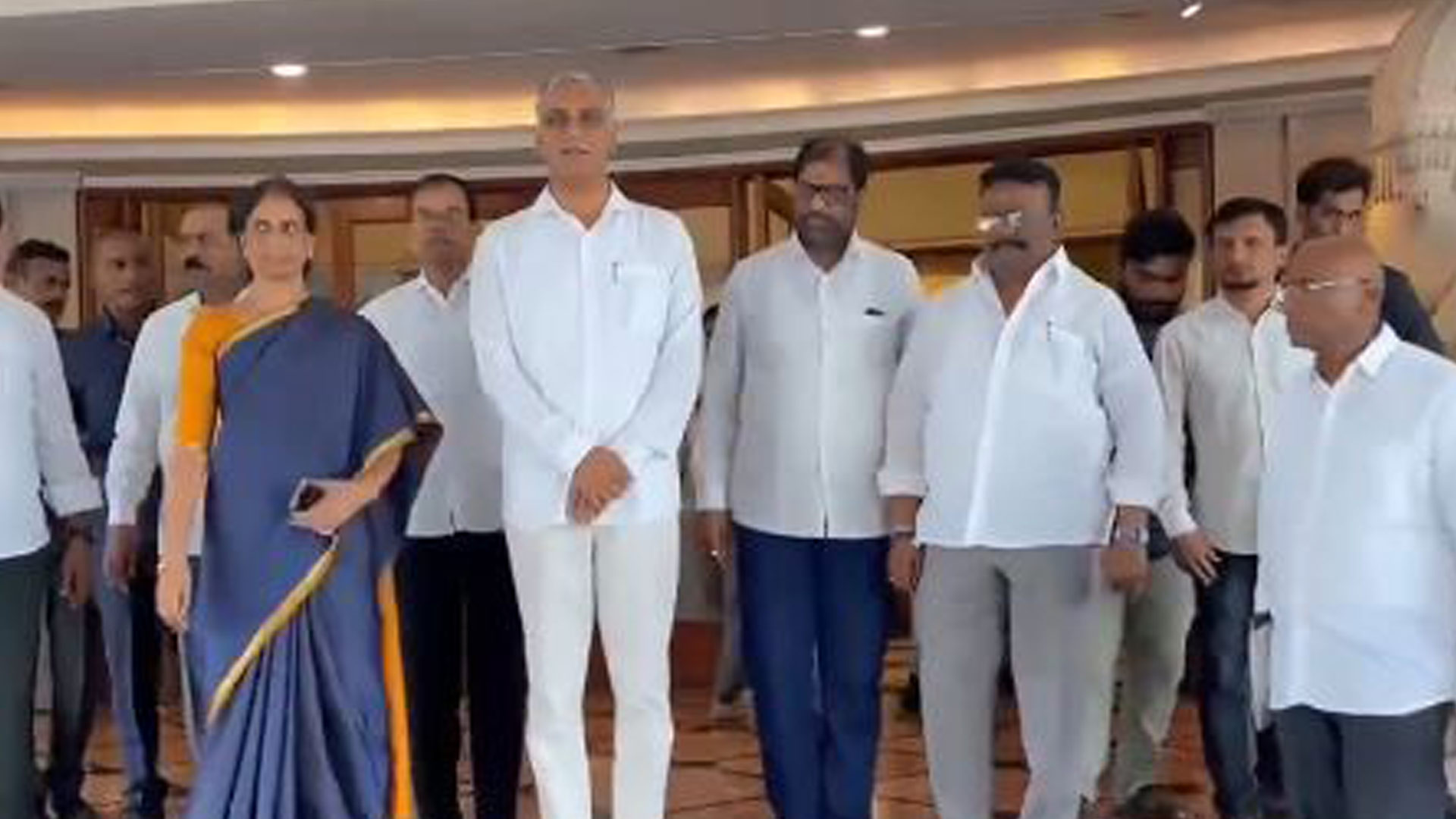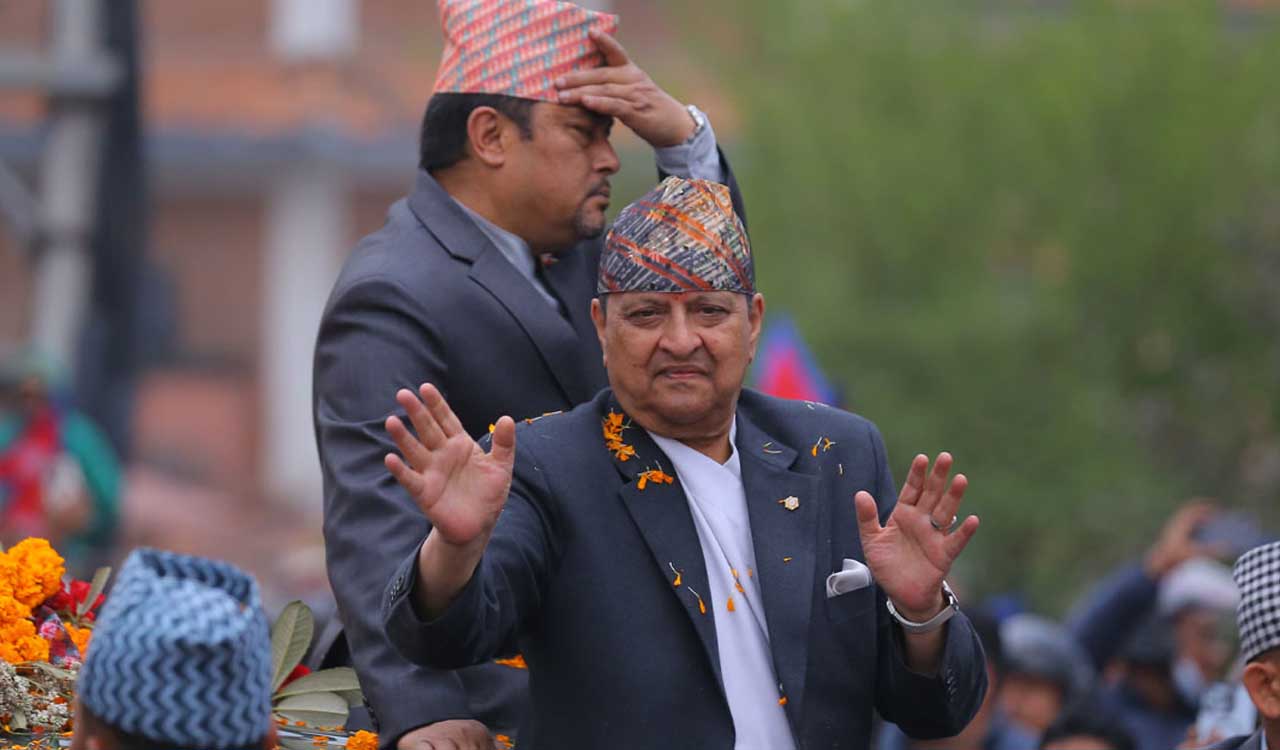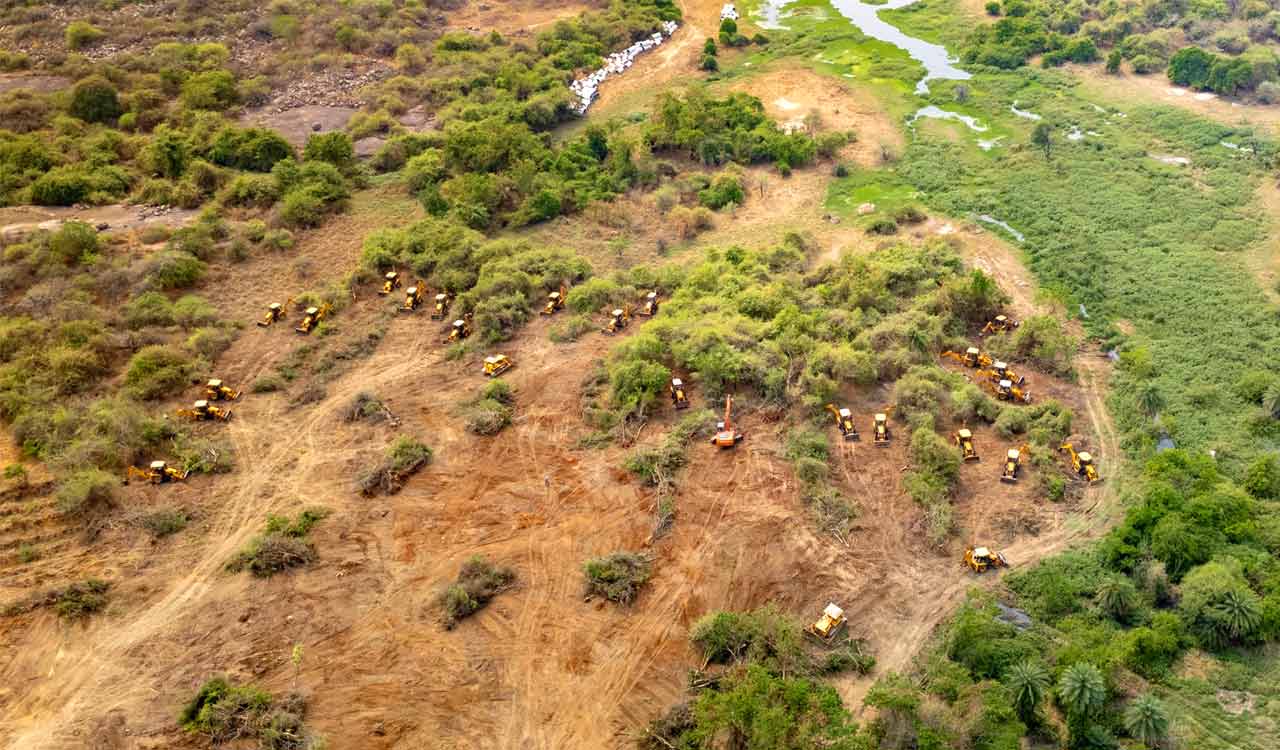Opinion: UoH and the silence of Hyderabad’s civil society
Today, Hyderabad needs civil society more than ever, not only for the prevalent authoritarianism but also when its biodiversity is on the brink
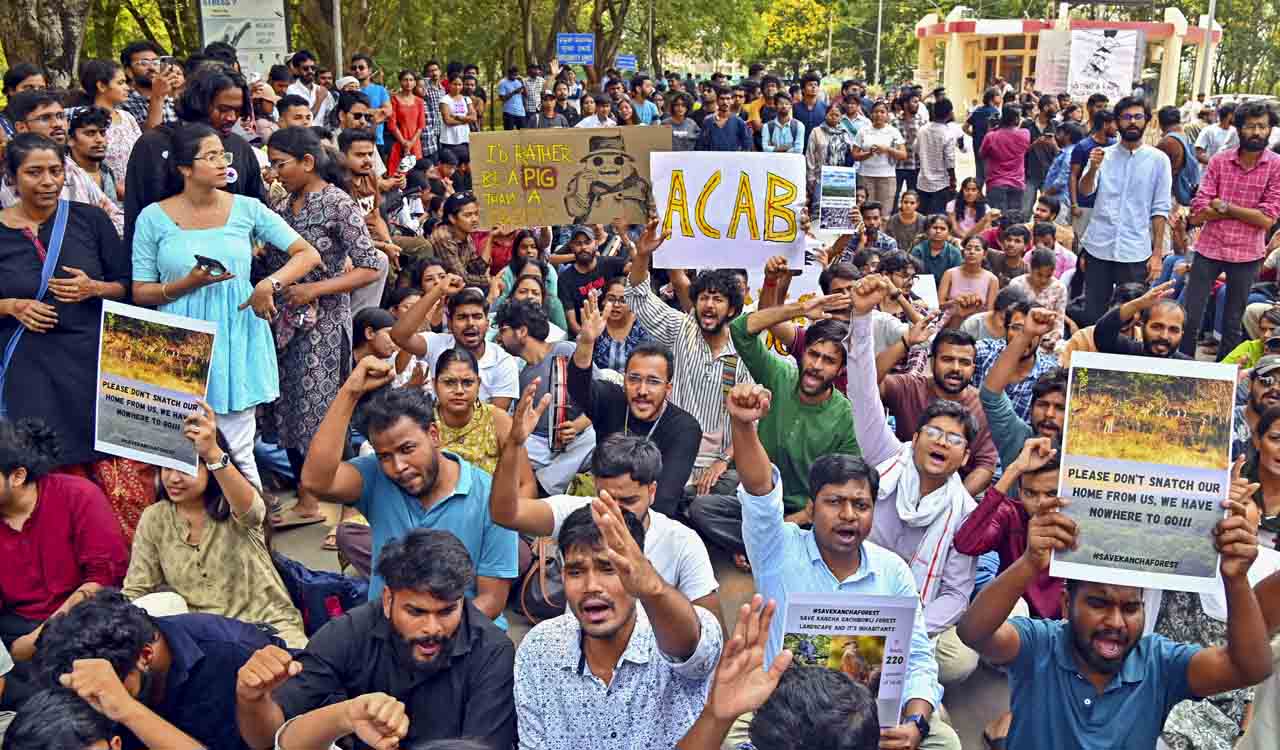
By Rahul Milind
I still vividly remember the midnight of 2 June 2014, when thousands gathered on the streets near Gun Park, the Telangana Martyrs’ Memorial, and my 11-year-old self was witness to history as Telangana became the youngest State in the country. The tumult and the chaos were nothing new, for I grew up during the agitation period of the Telangana movement when places like Osmania Arts College and Tank Bund would echo the dreams, hopes and aspirations of crores of Telangana people. The days and nights then felt like there was no end to them, yet the dawn of a new chapter never felt closer with each passing day.
Also Read
I always held the highest regard for Hyderabad’s civil society, who never feared challenging the state, advocating for what was right, and fighting until that right became the norm. For them, their voice, their pen, and their art were their biggest weapons.
However, today, a whole decade later when the city is screaming for its lungs to be saved from the tyranny and barbarism of the state once again, I do not see them anymore, I don’t know where they are.
Not Just UoH Issue
What is happening right now at the heart of Hyderabad in Gachibowli is not just an issue about the University of Hyderabad. This is an environmental crisis in the making for Telangana; a major threat to the biodiversity of the city and disruption to the co-existence between Hyderabad and its natural world.
It represents the authoritarian approach of the Revanth Reddy government, quite polar and contrary to what his party leaders in Delhi are seemingly fighting against at the Centre. Police brutality leashed out on those who have come forward to save these 400 acres of natural wealth, those who didn’t have to and could have just stuck to their academic obligations yet chose to – the students of Hyderabad Central University who have been thrashed, harassed and arrested for raising their voice for the environment, while those who are supposed to be on the streets have gone missing – civil society.
The last time I remember them roaring was during the 2023 State Assembly elections, where they had proactively criticised the then incumbents and the ruling BRS party. After Revanth Reddy formed his government, civil society has gone mute. Today, Hyderabad needs them more than ever, not only for the prevalent authoritarianism but also when the natural world is crying for help — 400 acres of Kancha Gachibowli forest lands, consisting of natural rock formations dating back to millennia, the flora that is home to a wide variety of fauna: deer, snakes, peacocks and several other species of animals and birds.
Mute Spectator
Horrific visuals emerged when the government hastily tried to erase the green belt over the long weekend, thanks to social media: peacocks screaming for help and deer running away as dozens of JCBs deployed by the government razed down trees and cleared the forest land, the home to these animals.
What should hurt one is why civil society is silent now — their selective outrage over state tyranny, suppression of the right to protest, police brutality, and most important of all, over ecological conservation and in fighting against this big threat to the natural world of Hyderabad, and Telangana at large.
Celebrating ‘Bangaru Telangana’ will mean nothing if vested interests continue to plunder State’s biodiversity
In August 2023, I witnessed what I would call a turning point in the history of Telangana: the funeral of Communist revolutionary singer Gaddar, and the public reactions that followed. It showed that in a battle between art and state, art would always win and thrive. When large crowds came onto the streets singing Podustunna Poddumeeda, a song of Gaddar’s that steered the statehood movement, it felt like Telangana agitation all over again. Revanth Reddy was quick to own Gaddar and his legacy.
However, the same song by Gaddar has come back to haunt Reddy’s government and highlight their hypocrisy and irony. Adigo, aa prakriti ni choodu ala arumukuntundi, aa kommalu gaali to muddadutaayi. Aa puvvulu ala adutayi. Adugo pourala janta nenuppudu vidiponantaadi, showing the life that resides in the ecological world of Telangana, and how and why this co-existence is crucial.
The scenes unfolding from Kancha Gachibowli forests in the same Telangana are very different: the branches of the trees and the flowers on the plants are no longer dancing to the wind, and families of deer and peacocks are being separated by JCBs, quite contrary to how Gaddar and the people of Telangana envisioned it to be a little over a decade into self-rule and self-determination.
In Name of Development
The state of the natural world in Telangana has been alarming since the time of its formation, for that is what it inherited from united Andhra Pradesh, starting from the lifeline of Hyderabad, the Musi River. Time has passed, and governments have changed, yet the Musi continues to be the city’s biggest sewage canal, and what once quenched the city’s thirst is today crying for attention. Several plans for Musi rejuvenation, however, focused on the ‘beautification’ of the riverfront rather than addressing the serious, underlying environmental challenges, sewage or urban planning.
As other things take precedence in celebrating what governments are calling ‘Bangaru Telangana’, the real wealth of Telangana – its natural resources – is in a state of despair, with Hyderabad moving unapologetically towards rampant urbanisation and IT under the guise of development.
Oftentimes in history, silence is regarded as a gap in understanding, putting forward challenges in learning more about that certain historical period. In the history of Telangana down the line, however, this silence of civil society will not go unnoticed, perhaps it will tell a lot more about the current state of Telangana than any words or noise. There will be another side to this silence, where history would not be kind to Hyderabad’s civil society. History will remember it for failing Telangana when it needed it the most to uphold the most precious relationship, its co-existence with the natural world.
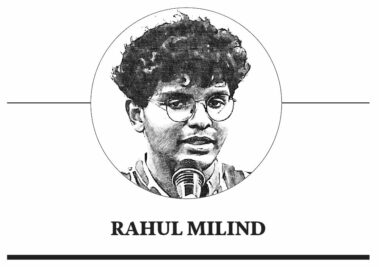
(The author is a Master’s student in Social Sciences at the University of Chicago)
Related News
-
BRS urges Supreme Court committee for stringent action against Congress govt in Kancha Gachibowli issue
-
Opinion: Return of the King, a new political debate in Nepal
-
Kancha Gachibowli: Supreme Court’s empowered committee begins inspection in Hyderabad
-
Opinion: India must rebuild trust with Bangladesh
-
Mancherial: Arrangements in place for procurement of paddy grains
2 mins ago -
Constables save man who attempted suicide in Medak
12 mins ago -
JNTU-Hyderabad inks pact with German University for Advanced Studies
16 mins ago -
Hyderabad Cybercrime police nab man for duping trader of Rs. 2 cr in stock trading scam
21 mins ago -
Editorial: Rooting for growth
25 mins ago -
Crop loss, debts drive two farmers to attempt suicide in Telangana’s Mulugu
26 mins ago -
Hyderabad cybercrime cops arrest Bengaluru man for cheating job aspirant to tune of Rs. 2 lakh
29 mins ago -
Actress Tabu joins Puri Jagannadh’s new movie co-starring Vijay Sethupathi
37 mins ago

